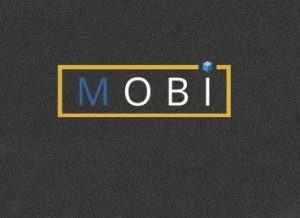 To appreciate how rapidly the automotive industry is changing, look no further than MOBI: the Mobility Open Blockchain Initiative.
To appreciate how rapidly the automotive industry is changing, look no further than MOBI: the Mobility Open Blockchain Initiative.
MOBI consists of 30 companies, including BMW, Ford, General Motors, and Renault, which have agreed to work together to explore how to incorporate blockchain technology into automotive and mobile. The group describes itself as “a global consortium of forward-thinking vehicle manufacturers and consumer-facing mobility providers” with a mission of “promoting standards and accelerating adoption of blockchain, distributed ledger, and related technologies for the benefit of industry, consumers, and communities.”
MOBI is not the first organization to get behind blockchain in automotive. As TechCrunch points out, Toyota and Renault are among the automakers that have been researching blockchain either on their own or as part of other groups. But MOBI focuses exclusively on blockchain adoption in automotive.
Blockchain is a secure technology that makes it possible for multiple parties to distribute but not copy data. Adoption of blockchain technology enables more distributed, cheaper, and faster ways for people and businesses to share transactional information securely. Blockchain has been called “the most disruptive tech in decades” because it can radically decentralize information sharing and commerce digitally.
Automotive companies ranging from manufacturers to dealerships are examining blockchain because of its potential for affecting the entire supply chain, from how cars are made to how they are sold. For instance, blockchain can streamline a myriad consumer financial transactions such as lease payments. And on the supplier side, manufacturers and distributers can collaborate more effectively. Pete MacInnis, CEO of eLEND Solutions, describes to the CBT Automotive Network a scenario in which the cost of a recall could be mitigated with blockchain. He hypothesizes that the more direct and decentralized way of sharing data via blockchain could make it possible for a suppliers’ defective part to be identified faster and changed on the assembly line.
According to a press release, MOBI will explore how to use blockchain in areas such as:
- Vehicle identity, history, and data tracking
- Supply chain tracking, transparency, and efficiency
- Autonomous machines and vehicle payments
- Secure mobility ecosystem commerce
- Data markets for autonomous and human driving
- Car sharing and ride hailing
- Usage-based mobility pricing and payments.
MOBI will employ an open-source approach to developing blockchain software tools and standards in order to accelerate the adoption of the blockchain.
MOBI is chaired by Chris Ballinger, former chief financial officer and director of mobility services at Toyota Research Institute. In a press release, he said, “Blockchain and related trust enhancing technologies are poised to redefine the automotive industry and how consumers purchase, insure, and use vehicles. By bringing together automakers, suppliers, startups, and government agencies, we can accelerate adoption for the benefit of businesses, consumers, and communities.”
MOBI also symbolizes how an entire industry can embrace change rather than wait to be disrupted. Businesses along the entire automotive supply chain have a stake in its uptake. To stay on top of developments such as blockchain, follow GrowWithCars as we explore the future of automotive.



